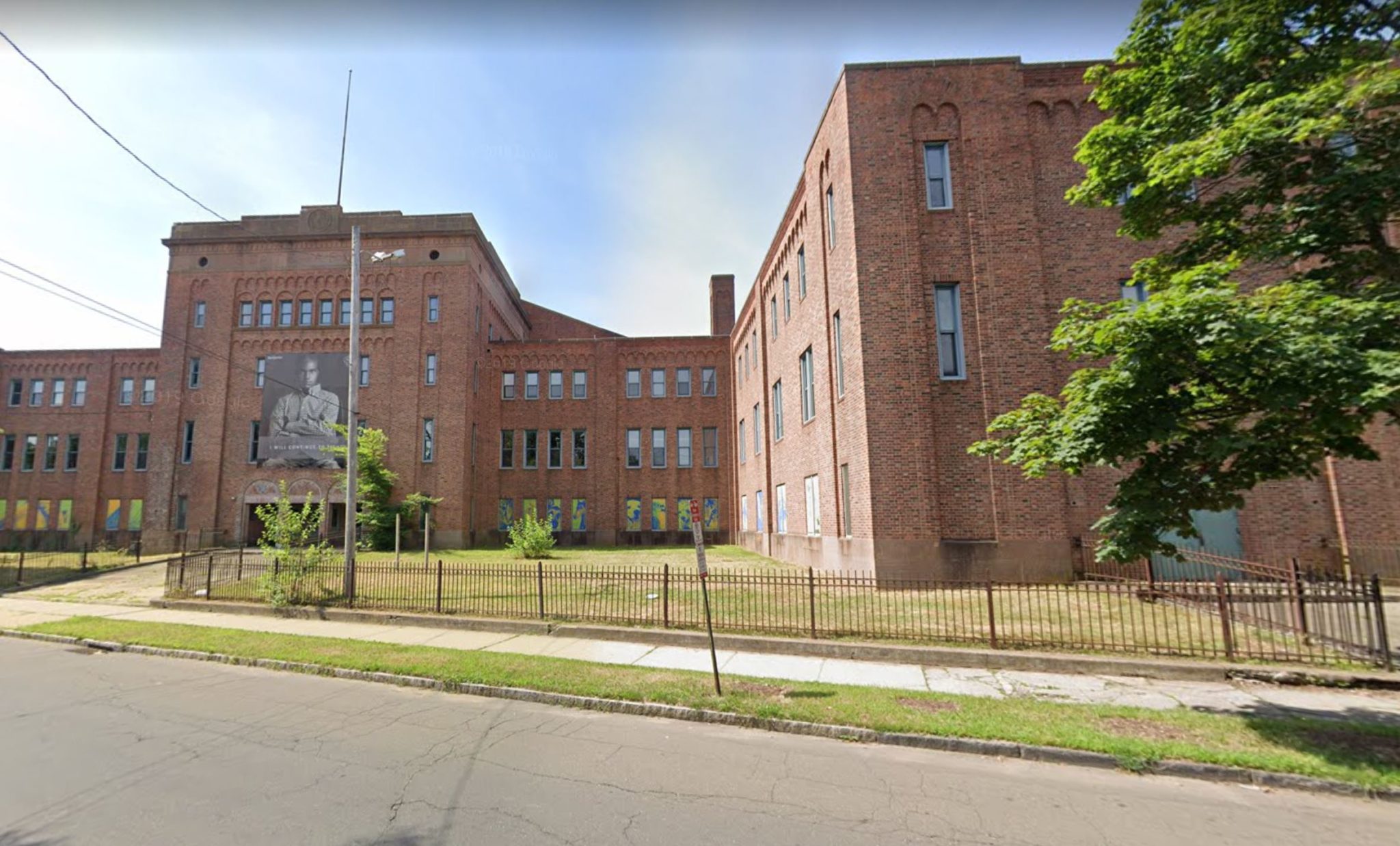
Yale Daily News
The Goffe Street Armory has sat overlooking Goffe Street in the Dixwell neighborhood for more than 90 years.
Though today’s disrepair has limited its utility to the public, the 91-year-old building’s lifespan has made it a focal geographical point in New Haven history. On Sunday evening, over 80 community members gathered virtually to learn more about its history and local preservation efforts from Leah Glaser, a professor of American history and the American West at Central Connecticut State University. The New Haven Preservation Trust, a local organization focused on preserving the architectural heritage of the city, organized the presentation, in an effort to promote public awareness on the building’s value for local residents.
“In preservation, place matters, history matters, and in order to find these places, we need community identification and we need to continue to uncover these stories,” Glaser said. “The history [of the Goffe Street Armory] needs to be supplemented with community memories.”
The Goffe Street Armory was built in 1930 to house the 102nd regiment of the National Guard and the Second Company Governor’s Foot Guard, a state military regiment. Over the years, the 155,000-square foot space served as a base for the National Guard’s armaments and other equipment. From its start, the building had also been intended to serve as a community space, and social events ranging from antique shows to pet shows were held throughout the mid-20th century.
Less known, according to Glaser, is the role the armory played in the Black Power movement of the 1970s.
“We often can’t appreciate what we don’t see,” Glaser said during the presentation.
In May of 1970, New Haven became embroiled in protests over the trials of Black Panther Party members. Then-Connecticut Gov. John Dempsey assembled 3,000 national guardsmen at the armory to counter any violence that would arise although the protests ended up being peaceful.
In contrast to that history, the armory was also home to the New England Black Expo, which was organized by the Black Coalition of Greater New Haven in 1972 and attracted about 30,000 people. The goal of the expo was to promote the economic advancement of African Americans and featured African American products, businesses and culture.
“[The armory] represents a nexus of multiple historical narratives; from the formalization of the National Guard in the United States to the work of the Black Coalition in the 1970s to create a ‘Black Expo’ for business development,” said Elihu Rubin, an associate professor at the Yale School of Architecture who spoke at the event, in an email to the News.
Rubin spoke about the ongoing advocacy efforts that hope to preserve the armory. He is part of the Armory Community Advisory Committee, a group who works to “celebrate the past, observe the present and imagine the future” of the building as Rubin described. Their goal is to keep a spotlight on the armory by hosting public events to discuss the future of the space and to promote investment.
Glaser told those in attendance that the reclaiming and repurposing of the armory from a site of “military buildup” meant to suppress civil rights efforts by African American communities to one that sought to improve the economic opportunities for the neighborhood’s predominantly African American population was “really, really poetic.”
She said she hopes residents will continue to educate themselves about the role of the site in local histories.
“Seeing this history and understanding this history and recognizing this history is really important to understand considering what’s going on today,” Glaser said.
Glaser works as a historic preservation consultant and has worked with the New Haven Preservation Trust in the past. Her work with the Goffe Street Armory has included creating a nomination form for the amory to be included on the National Register of Historic Places.
As a historian, Glaser said that she was interested in the history behind historical preservation. Glaser said early preservationist efforts were rooted in early 20th century ideas of patriotism and heritage. This later led to the rise of preserving cities as tourism destinations in the latter half of the century. According to the New Haven Preservation Trust, most preservation practices have focused on the architectural significance of buildings or places, at the risk of losing important histories.
The New Haven Preservation Trust was involved in discussion with the city that led to the site being nominated to the National Register of Historic Places in 2019, according to Elizabeth Holt, director of preservation services at NHPT. The nomination has been approved by the State of Connecticut and has gone to the National Park Service for final approval.
According to Rubin, being selected on the National Register establishes the armory’s physical and social significance and also bestows economic benefits such as grant eligibility and tax credits.
This could help attract funding for the building which has fallen out of use due to disrepair over the past decade. In 2009, the National Guard abandoned the building, transferring ownership to the city. Since then, the city has used it sparingly for events like Artspace’s City-Wide Open Studios and as a storage space for city agencies like the New Haven Police Department.
Rubin said the Armory Community Advisory Committee will continue to assess the physical status of the armory and generate ideas for different programs that could be held. He hopes the public will continue to play a role in imagining future uses for the space and said that the armory “could be a civic jewel for our city.”
According to Holt, events like Sunday’s can promote awareness and education on the history of places which are key in vitalizing the public to support preservation efforts.
The New Haven Preservation Trust was created in 1961 and will be celebrating its 60th anniversary this year.
Sai Rayala | sai.rayala@yale.edu







